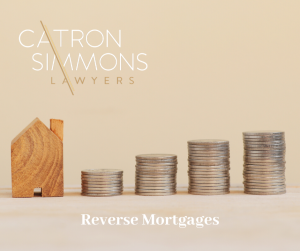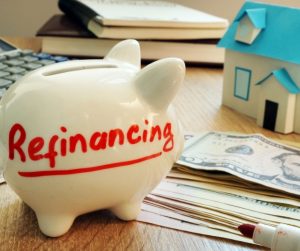A reverse mortgage is essentially money being advanced to a person who owns their home. There are no repayments and the loan amount and accumulated interest is deducted from the sale of the property.
Reverse mortgages need to be treated with great care, the interest on these lines of credit can be so great that a person unwittingly has very little equity in their home upon sale. In our experience this usually becomes known when an elderly person needs to enter an aged care facility and requires a bond or at the time of sale.
Can you get out of a reverse mortgage?
Generally, a reverse mortgage is paid out when the home is sold, the funds from the sale are used to pay out the reverse mortgage in full at that point.
The loan can also be paid like any other loan with payment of the money owed. Each loan is different, and you should obtain legal and financial advice is regards to discharging a reverse mortgage.
How much can I borrow?
The amounts tend to differ depending on the following:-
- Your age
- Value of the home (how much you own as well)
- Type of equity release
How is a reverse mortgage paid out?
Again Depending on your age, you can take the amount as a:-
- Lump sum
- Regular income i.e. fortnightly or monthly
- Line of credit or
- Combination
Dangers of a reverse mortgage
- Interest and fees compound and add considerably to your loan balance
- Interest rate is likely to be higher than a standard home loan
- Can affect income tests with Centrelink
- If someone is living with you that is not on the title, that person may not be able to stay when you move out or die
- Can put our whole home at risk not just a portion especially, in the case of borrowing of==for investment
There is also the possibility of the debt equalling or exceeding the total equity of the premises leaving a person in debt. Which is why it is critical to obtain independent legal and financial advice. In 2012 the government brought in a number of Consumer protections under the Social Security Act 1991 (Cth) including the “no negative equity guarantee” with Home Equity Access Scheme ‘HEAS’, meaning that borrowers cannot owe more than the market value of their secured property when it is sold. Lenders must return any amount paid in excess of the market value.
The no negative equity guarantee does not apply if:
- a non-HEAS charge or encumbrance on the securing property was created, or increased, after the person began receiving HEAS payments, and this interferes with the Commonwealth’s ability to recover the HEAS debt, or
- the person engaged in fraud or misrepresentation regarding their participation in the HEAS.
A helpful tool is the Money Smart reverse mortgage (click here) calculator to give you a better idea of the costs involved over a long period of time.
 Other options?
Other options?
Consider looking at the Pension Loan Scheme with Centrelink providing short term and longer term loans to a person who owns real estate and is of pension age, but due to their assets or income, do not receive the pension or only receive a part pension.
How can Catron Simmons Lawyers Assist?
The person taking out a reverse mortgage is always advised to obtain independent legal advice. This is not a tick and flick exercise for us. We need to see the document in advance of our conference in order to make notes and be prepared to discuss the matter with you.
Contact us today, to make an appointment.

 Other options?
Other options?